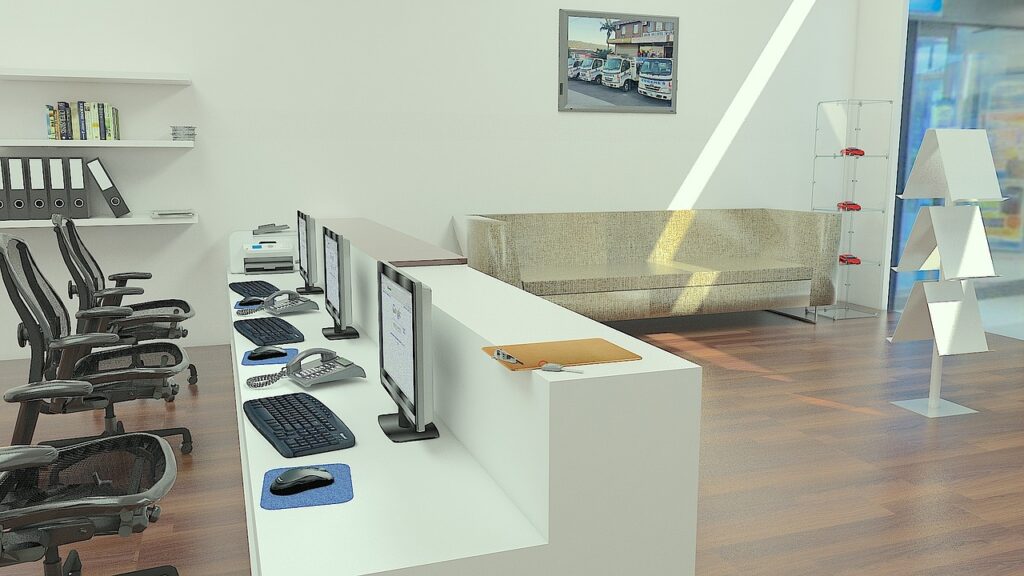You love your job, but you hate your workplace. You’ve been working hard for years, but you feel like you’re not valued or respected. You’ve been forced to give up your desk to a new hire, who seems to get all the attention and praise from your boss. You feel like you’re being pushed out, and you wonder if you should quit.
If this sounds familiar, you’re not alone. Many workers face similar situations, where they have to deal with a toxic workplace that affects their mental and physical health, their performance, and their career prospects. A toxic workplace is one where there is a lack of trust, communication, and support, where there is discrimination, harassment, or bullying, where there is unfairness, favoritism, or nepotism, or where there is excessive pressure, workload, or expectations.
A toxic workplace can have serious consequences for your well-being and happiness. It can cause stress, anxiety, depression, burnout, low self-esteem, low morale, dissatisfaction, frustration, anger, resentment, isolation, or even physical illness. It can also affect your professional growth and development, as you may lose motivation, confidence, creativity, productivity, or opportunities.

What can you do if you find yourself in a toxic workplace? How can you cope with the challenges and difficulties? And how can you know when it’s time to quit and move on? Here are some tips and advice from experts and other workers who have been in your shoes.
Recognize the signs of a toxic workplace. The first thing you need to do is to identify and acknowledge the problem. Sometimes, you may not realize how bad the situation is, or you may try to ignore or rationalize it. But if you notice any of the following signs, you may be dealing with a toxic workplace:
– You dread going to work every day, or you feel anxious, depressed, or sick before or after work.
– You have trouble sleeping, eating, or relaxing, or you experience headaches, stomachaches, or other physical symptoms.
– You may feel like you’re always walking on eggshells, afraid of making mistakes, speaking up, or expressing your opinions.
– You’re not appreciated, recognized, or rewarded for your efforts, or you’re constantly criticized, micromanaged, or undermined.
– You feel like you’re isolated, excluded, or ignored by your colleagues, or you have no friends or allies at work.
– You may think you’re being treated unfairly, discriminated against, harassed, or bullied by your boss, co-workers, or clients.
– You have no control, autonomy, or flexibility over your work, or you have unrealistic, unclear, or conflicting expectations or goals.
Take care of yourself. It is to protect and prioritize your health and happiness. A toxic workplace can take a toll on your physical and mental well-being, so you need to take care of yourself and practice self-care. Here are some ways to do that:
– Set boundaries and limits. Learn to say no to unreasonable demands, requests, or expectations. Don’t take on more than you can handle, or work longer hours than you should. Don’t let your work interfere with your personal life, or vice versa. Don’t let your boss, co-workers, or clients disrespect, abuse, or exploit you. Stand up for yourself and your rights, and assert your needs and preferences.
– Seek support and help. Reach out to your friends, family, or other trusted people who can listen, empathize, or advise you. Join a support group, or find a mentor, coach, or counselor who can guide, motivate, or empower you. Seek legal or professional assistance if you face any violations, conflicts, or disputes at work.
– Manage your stress and emotions. Find healthy and positive ways to cope with your stress and emotions, such as meditation, yoga, exercise, hobbies, music, or humor. Avoid unhealthy and negative coping mechanisms, such as alcohol, drugs, smoking, binge eating, or gambling. Express your feelings in a constructive and respectful way, such as writing, talking, or venting.
– Nurture your body and mind. Eat well, sleep well, and rest well. Stay hydrated, and avoid caffeine, sugar, or junk food. Exercise regularly, and stay active and fit. Relax regularly, and do something that calms and soothes you, such as reading, gardening, or spa. Learn something new, and stimulate and challenge your brain, such as taking a course, reading a book, or solving a puzzle.
– Celebrate your achievements and strengths. Don’t let your work define your worth or identity. Recognize and appreciate your achievements and strengths, and reward yourself for your efforts and accomplishments. Be proud of yourself, and boost your confidence and self-esteem. Focus on the positive aspects of your work, and the value and impact you create. Be grateful for the opportunities and experiences you have, and the lessons and skills you learn.
Take action and make changes. It is important to take action and make changes. A toxic work environment can impact your performance and productivity, therefore it is crucial to address the situation and make changes in order to reach your goals. Here are some ways to do that:
– Communicate and collaborate. Be honest, respectful, and constructive, and express your concerns, expectations, or suggestions. Listen, understand, and empathize with their perspectives, needs, or feedback. Seek common ground, and find a win-win solution or compromise.
– Adapt and adjust. Be flexible, open-minded, and willing to learn and grow. Embrace the challenge, and see it as an opportunity to improve yourself and your work. Be proactive, creative, and resourceful, and find new ways to do your work or achieve your goals.
– Seek feedback and improvement. Ask for feedback, advice, or guidance from your boss, co-workers, or clients, and listen, accept, and act on it. Learn from your mistakes, failures, or setbacks, and don’t repeat them. Seek new opportunities, experiences, or projects that can help you learn, grow, or advance in your career.
– Plan and prepare. Set realistic, clear, and specific goals, and break them down into manageable steps or tasks. Prioritize, organize, and schedule your work, and stick to your plan. Track, measure, and evaluate your progress, and adjust your plan if needed. Anticipate, prevent, or solve any problems or obstacles that may arise.
Know when to quit. It is to know when to quit. A toxic workplace can affect your career and future, so you need to know when to quit and move on. Quitting is not a sign of weakness, failure, or defeat, but a sign of strength, courage, and wisdom. Quitting can be the best decision you can make for yourself and your career, as it can open new doors, opportunities, or possibilities for you.
Quitting your toxic workplace can be a tough and scary decision, but it can also be a liberating and rewarding one. By following these tips and advice, you can deal with your toxic workplace and know when to quit, and you can also quit your job in a professional and graceful way. Remember, you deserve to work in a place where you are valued, respected, and happy, and where you can thrive and succeed in your career. Don’t let your toxic workplace hold you back, or ruin your life. You have the power and the choice to change your situation, and to find a better workplace that suits you and your goals.





